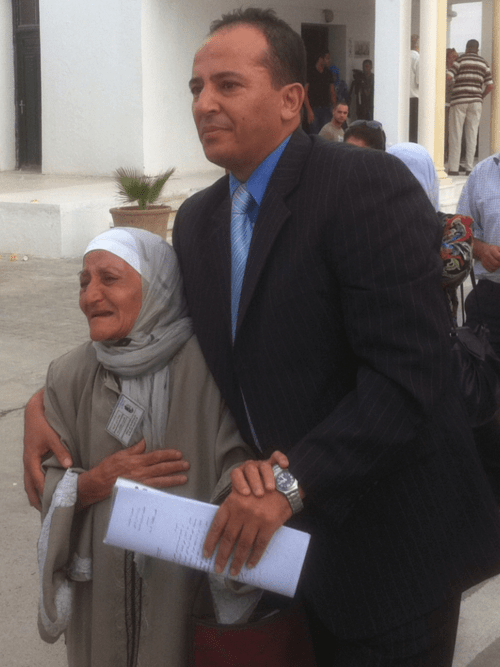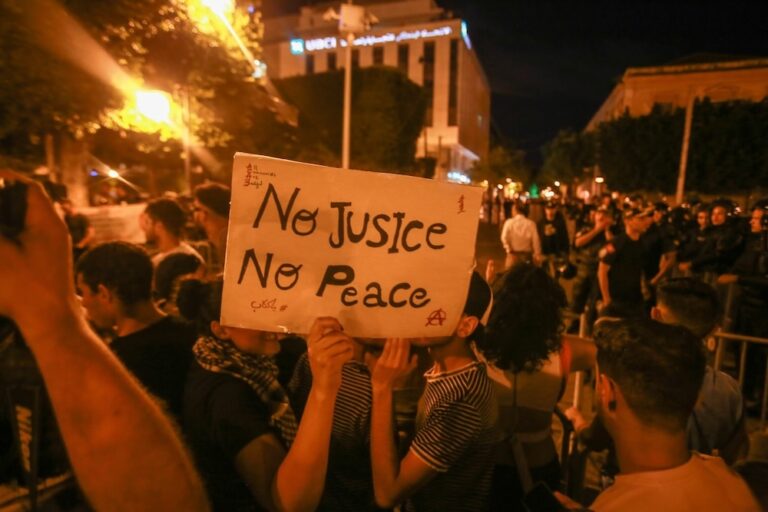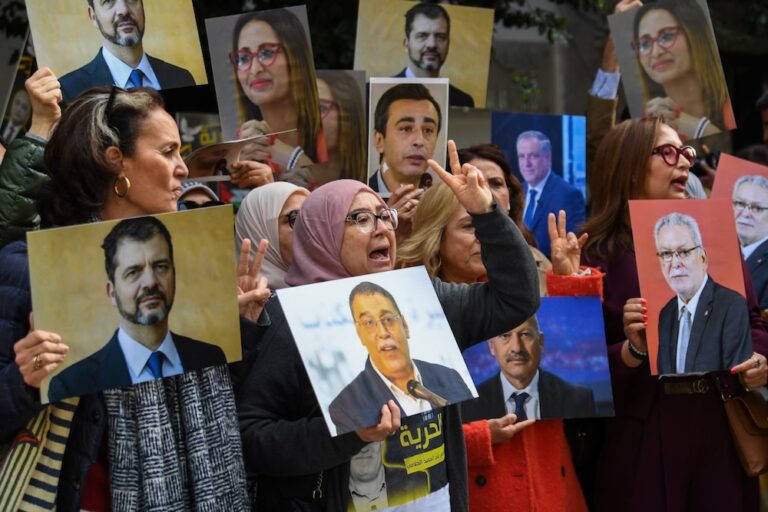IFEX-TMG attends trial of Samir Feriani, acquitted of charges of leaking information about the destruction of evidence linking Tunisian secret police to torture and other crimes.
(IFEX-TMG) – 3 October 2011 – Free expression defenders are celebrating Thursday’s decision by a military court to drop charges against a Tunisian policeman who blew the whistle on a still-active core of officers from the country’s pre-revolution days — some of them alleged torturers, others linked to Tunisia’s long notorious internet surveillance squads.
Senior Tunisian police commissioner Samir Feriani, a public critic of the way officers previously linked to torture and censorship continue to hold influence over the security services, was dramatically arrested and initially held incommunicado on 29 May. Anti-terrorist police allegedly rammed his car before seizing him.
But on 29 September, a military court acquitted him of charges of “harming the external security of the state,” and declined to hear two other charges of distributing information “likely to harm public order,” and “accusing, without proof, a public agent of violating the law.”
Though the last two charges may yet be transferred to a civilian court, the Thursday verdict was celebrated widely by Feriani’s supporters and his family, including his elderly mother, who was in court for the hearing.
The day-long hearing was observed by members of the International Freedom of Expression Exchange Tunisia Monitoring Group (IFEX-TMG), a coalition of 21 free expression groups.
Feriani told the IFEX-TMG observers that the verdict was not about him, but about all Tunisia and the right to freedom of expression. He was particularly pleased that the court had proved its independence from political interference and had delivered a fair and transparent verdict.
Thanking the IFEX-TMG for its support, he said he had not yet decided his next steps and would simply “wait and see,” adding, “the most important thing now is Tunisia settles down and the remains of the regime disappear.”
Feriani was arrested and later charged after he sent a strongly-worded letter to Interior Minister Habib Essid in which he blamed current officials for allowing protesters to be killed during the January 2011 Tunisian revolution, and warned that “notorious torturers” remain at large.
He also accused officers of destroying official records, including some taken from the former residence of the late PLO Leader Yasser Arafat. His accusations were reported in two newspapers, El Khabir and l’Audace, before his arrest.
The Observatoire pour la liberté de presse, d’édition et de création (OLPEC), a member of IFEX and partner of Index on Censorship, has long argued that the police and security services should be held more accountable and subject to law.
OLPEC secretary-general Sihem Bensedrine said the verdict was a “fair outcome” that could restore some confidence in the Tunisian courts but left questions about the old regime’s lingering power even after the January 2011 revolution.
“It shows how the secret services continue to manipulate the archives,” she said, “denying their victims evidence while exposing the failure of the provisional government to act.”
IFEX-TMG chair Rohan Jayasekera of Index on Censorship added: “The right of whistleblowers to go public and expose wrongdoing when official channels fail to address crimes is clear and absolute. The decision of the court today is evidence that Tunisia can have a future as a mature democracy guided by fair and independent justice.”



